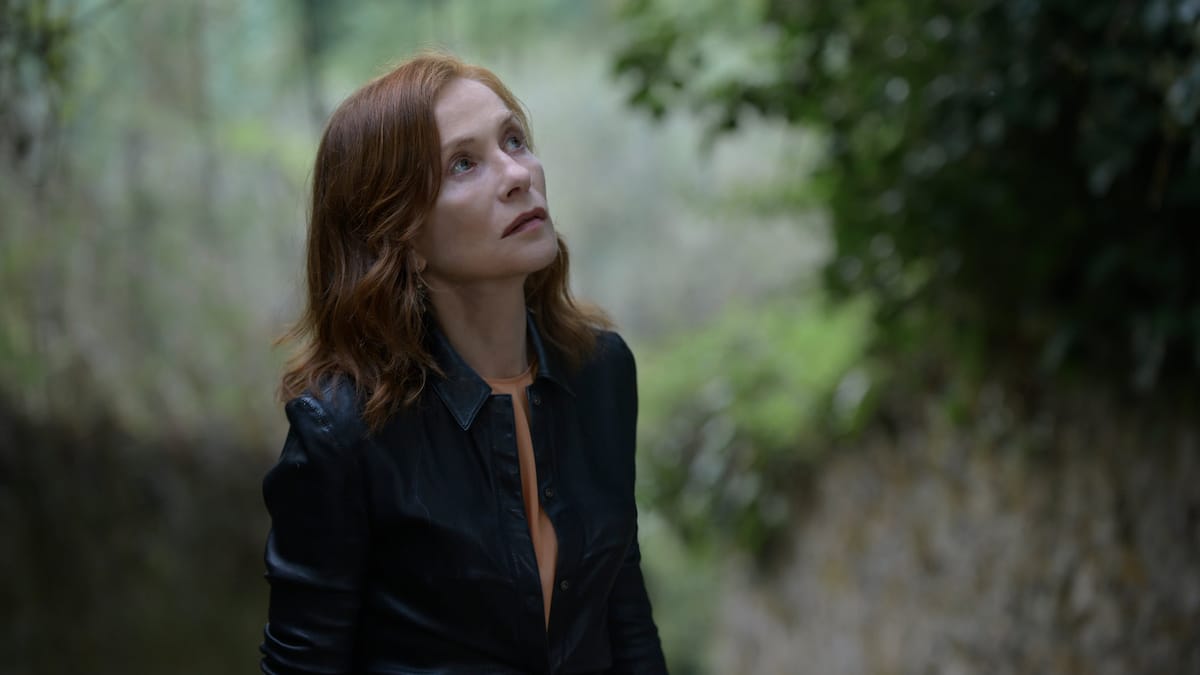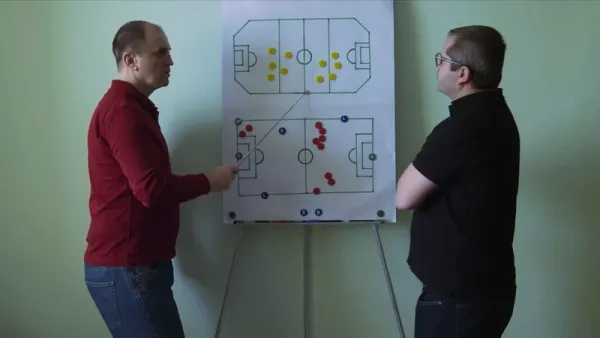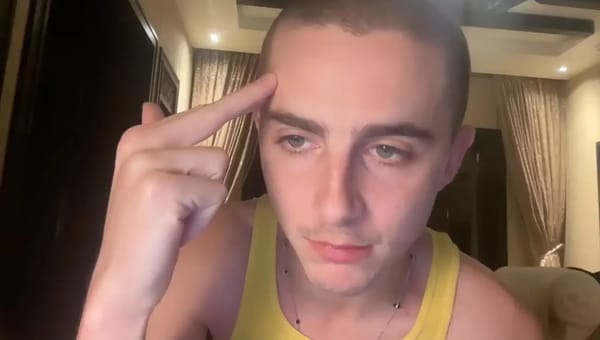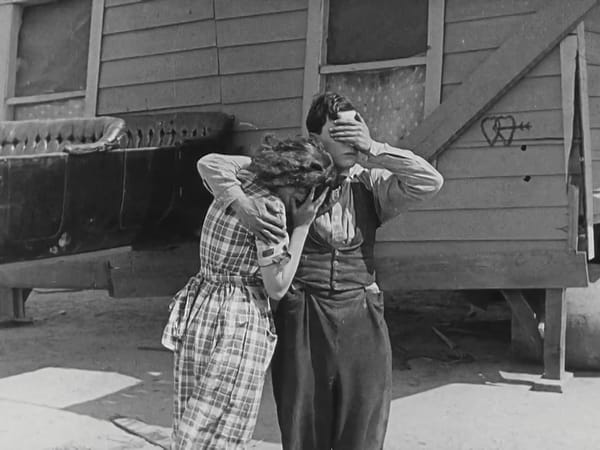A Conversation with Ira Sachs

The American filmmaker discusses his most ambitious film to date
Elena Lazic talks to Keep the Lights On (2012), Love is Strange (2014) and Little Men (2016) director Ira Sachs about his film Frankie (2019), a bold cinematic feat that looks like just another “rich people on an exotic holiday” drama but is in fact a sneakily constructed look at love and conflict through time and generations, culminating in a strange and strangely moving final abstraction. It put Animus founder Elena Lazic in mind of Claire Denis’ High Life, no less.
Elena Lazic (EL): I am most familiar with your last three films, from Love is Strange to Frankie. Something that is quite striking to me about them is that all three are about people who are under the pressure of really powerful outside forces. In Love is Strange, there is death; in Little Men, it's social and economic forces; and in Frankie, there is ageing and illness. These are the things that make the story happen every time.
Ira Sachs (IS): Well, I can say that, before these films, it was very different. In the films that I made before that, I would say the biggest struggle was with the individual, with him or herself, in the context of relationships. Being uncomfortable with one's own interior made life challenging for the characters in the film. And, I think for me, in my late 30s, I had a shift personally that made it so I was less uncomfortable in my body, and in my relationships. I think the films reflect the moment in which I make them, and I think I have greater faith in the possibility of intimacy than I used to. I have experience of intimacy that means, in my own marriage, that the things I tend to face as struggles are now external things. And external isn't exactly the word because economics and mortality are there. I mean, in Love is Strange, the Catholic Church is an antagonistic figure. One thing that I've thought about in terms of Frankie, is that you could say that each couple in the film is fighting something different. There's a coming of age film in the movie, with the young girl, there's a marriage drama between her parents, and then there is this question of mortality. And there's a love story of loss that's happening there.
"I think that, almost in a novelistic fashion, you can't appear without having history. And so I'm writing films in which generations are present."
Ira Sachs
EL: You mentioned the process where you feel you’ve changed and perhaps become more mature over time. Little Men was centred on children, but Frankie features a rather wide panoply of different people from completely different walks of life and different ages. So how does age come into it equation? You don't at all portray these children as adults, they don't speak like adults at all. But it feels like you're playing with the different nuances between all those things.
IS: I think that, for me, there are certain things that are central in defining character. One thing is economics. Money is always part of character. And also generational history. So, we could sit here with our mothers right next to us, and in some ways they are right next to us, because they're a part of our story and what led us here. I think that, almost in a novelistic fashion, you can't appear without having history. And so I'm writing films in which generations are present. And in Frankie, they're the most present because there are these levels of stories that have to do with generations.
EL: From the outside, Frankie could look like one of those exotic films in nice locations about rich people having problems, which I guess it is, but it transcends the cliches that you would expect from that. Obviously, most of the characters have money, and they're very comfortable. I remember very well the scene of Isabelle Huppert in that beautiful pool. But you still have the question of class with the character of Marisa Tomei.
IS: It didn't occur to me that that would make some people uncomfortable. To me, it's bourgeois cinema. It's about the bourgeoisie. You know, so is Flaubert. So is Henry James, so is Chekov. I'd seen a film about 15 years ago, by Satyajit Ray, called Kanchenjungha, made in 1962. It's about a family on a vacation in the Himalayan mountains and it takes place in one day. There are nine stories, a central crisis, and there is a relationship between the characters and nature that is very powerful. I really loved the structure of the film, and I thought it was an interesting challenge, because there are all these theatrical boundaries, in terms of time, in terms of multiple characters. And so when I started this conversation with Isabelle Huppert, what I called my "mountain film" felt like a good thing for me to work on with her, and an exciting project. I felt like she would be the great star of that film.
"It's not a realistic film. It's an orchestrated film."
Ira Sachs
I would never work with Isabelle in France. Because I would be out of my element. I wouldn't have any intimacy. But I found intimacy, not with Portugal, per se, but with this town of Sintra, based on spending a lot of time there, and having a response to something in which I felt like I knew something about it better than anyone else. I don't feel like I was looking at it from a distance. That doesn't mean that I was up there or have the historical knowledge, but it felt like I could bring this story there in a way that was very authentic to me. I also try to work with people as close as possible to who they are. And to me it felt very natural to write Isabelle Huppert as an actress. I wasn't going to write her as — I mean, other people have! She has played a scullery maid before...
EL: You talk about filming the place with a kind of authenticity — I remember having the distinct feeling while watching the film that the camera and the film itself were of the place and knew the place. The characters walk through it as tourists, but the film itself does not have this perspective. There is also the fact that these characters are supposed to be enjoying the place, but are in fact having very heavy conversations. Meanwhile, we are looking at them. We're not looking at the scenery. In fact, there is such careful framing of everything in the film. It feels very elegant, but not in a precious way. It is just very precise. How did you work with that?
IS: It's a very theatrical structure, where you're playing with realism as well as, really, with farce. We closely watched Rules of the Game and were interested in creating characters that are knowable, but excessive. Particularly if you think of Jérémie Renier and Greg Kinnear, and certain moments which are heightened beyond the realistic. And I think that, to some extent and more so than the location, is something that people are at times uncomfortable with in the movie. It's not a realistic film. It's an orchestrated film. What you're talking about is kind of the musical nature of its construction. And I would say that happened in every stage — it happened in the writing stage, it happened definitely in the shooting stage where we came up with a strategy in terms of the mise en scene, which was very rigorous, and didn't include any alternative options. There is no improvisation in terms of movement, it is very choreographed. And that was based on a close study of Eric Rohmer's films; interestingly, the result in his films is very naturalistic. The result in my film was not. But the actors are always defining movement, not the camera. The camera is attentive to what the actor does. And the actor is often individually changing the scale, the actor moves from a wide shot to a close up. The camera doesn't move. So it becomes a very constructed piece of dance, to some extent. Hopefully, the audience does notice that. I mean, that's not what you want the audience to pay attention to. But I think there is a sense, as you describe, that it is precise, and I think maybe that is what one feels.
"One of the things I really like in cinema that I want to hold on to, which I think is harder to some extent in the age of television, is abstraction."
Ira Sachs
And I think that, within that, you're also hoping for something which is more amorphous, abstract. One of the things I really like in cinema that I want to hold on to, which I think is harder to some extent in the age of television, is abstraction. It is ambiguous meaning. But not just ambiguous — abstract meaning. That's something that I think is harder for audiences.
EL: In the film, we start with these characters who are funny and given life. Then you build up to this abstract emotion that is so moving. But I think there is a sense that we don't necessarily — it isn’t that we don't understand why it's moving, it's not a mystery. But the way it gets there, it starts to become less realistic, as the characters get to the top of the mountain overlooking the sea.
IS: I think it also goes from being a film of the head of to a film of something less mental.
EL: Why did you decide to develop this movement? We begin with these characters who are quite literary, who talk a lot — especially the Jérémie Renier character, who can always explain everything. Then at the end, he is silent. The last 10 minutes are almost without words.
IS: I was a teacher at graduate school at NYU, and there is this idea that there is a narrative arc which student filmmakers should learn. They are taught that they need to achieve the arc plot-wise, and I always encouraged them not to think about it as plot arc, but as emotional arc. I think I'm always headed in a direction in which there is some emotional shift or movement, which I think the audience will move through. What specifically happens in this film is that, for a very long time, you're disoriented. There are many characters and you don't know their relationships. And then at a certain point, and I think it's quite specific — it's a moment where Brendan Gleason is observing his wife Isabelle Huppert in bed, where the film comes to a rest. And from that moment on, the audience knows everything. But it takes that long to get to the point where the audience becomes inside the film. I think that's a challenge for some people. But once that hits, then I think you are with the film. And I don't say I knew this in advance, that I knew that this was the turning point. But certainly in editing, it was very clear to me that everything shifts here.
"I hope that there is a sense of culmination but not necessarily of resolution."
Ira Sachs
EL: What you say about the way things start in the real world and then ends this way — I feel like this abstraction is an opening, because it means that the film continues with you. It doesn't end, in a way.
IS: I think that in all my films, I'm interested in a sense that there was a story before and there will be a story after. I hope that there is a sense of culmination but not necessarily of resolution.
EL: I also think that there is a sense, especially in Frankie, that you really are in the film, you really are thinking about the film and working with the film, and then you're rewarded with this beautiful emotion. Then you can also continue working with the film after it has ended, thinking about the way it was all done and the implications of everything. I think it's a very active viewership.
The way the film opens up at the end with this beautiful final emotion made me think of Claire Denis' High Life. Have you seen it?
IS: I haven't! Claire Denis is a huge inspiration. I've seen everything else!
EL: There is also in this film an ending that is huge, abstract, very emotional, strange and beautiful.
IS: I really like Beau Travail, it has my favourite ending. It's an ending you can never forget. And a lot of people in America didn't, but I really liked the Juliette Binoche film she did, Let the Sunshine In. It was such a Claire Denis movie! When people said they didn’t like it, I was like, “What is everyone talking about?!” Her and Agnès Godard made a great movie together. And with Juliette Binoche. She's become a wonderful actress — I almost said that earlier, but I don't want to mean that she wasn't a wonderful actress before, just that she's become a truly fantastic actress. Did you like the Olivier Assayas film she was in, Nonfiction?
"When you work with Isabelle, you strangely feel like she's never made another movie before."
Ira Sachs
EL: I did, and it was interesting to see her in an ensemble cast. Actually, let's talk about Isabelle Huppert. You said she contacted you?
IS: She contacted me, she'd seen Love is Strange. She wrote me a letter and I thought it was fake, but it wasn't! We started a conversation, and it didn't occur to me that I would come up with something that would be good for us to do together until I remembered this "mountain film." And then it was a wonderful experience working with her. I mean, that's kind of a cliched thing to say, but it really was. I really learned a lot from her emotionally and also... I seek mentors, which I've never had. I've never had mentors. And I ended up starting an LGBT arts nonprofit, to create mentors for people. I think this partially has to do with the fact that I came of age just at the tail end of the worst of the AIDS epidemic. So, I don't know. I just have never had anyone.... I think I seemed grown up before I was! Even now — I'm kind of embarrassed to mention him again, but I was walking down the street, and I know Assayas a little bit now, not well, and I was thinking, "I need mentorship." Like, how do you do this? Because it's so hard! I mean, it's not digging ditches. But it's hard. It's hard to keep going. And I think Isabelle teaches you a lot about — and I think that's in Frankie — about how to keep going. It's to do with resilience, and it's also about pleasure. And it's also living very much in the moment. When you work with Isabelle, you strangely feel like she's never made another movie before.
EL: In a good way?
IS: In a good way. She's not nostalgic, and she's not future focused. She's right there. So when people ask, "Is it hard to work with someone who's worked with Chabrol, Godard, Claire Denis and all these amazing directors?," I reply, "no." Because she doesn't want to talk about them, she's not interested in them, and they're not there. Each director asked her something different.
One thing I felt with her, and we've talked about this since we made the movie, is that it was very important for me that she not comment on her performance while she was giving it. By this I mean, I didn’t want her to include the room for irony. And it was not easy to decide to tell her that. But I wanted her to remove that space between herself as a character and herself as an actress, because I think that's a place where she's very comfortable. But I think that for her, this was exciting. That's the thing — she likes to work. So I was like, "This time, I want you to just listen and respond," which is what I generally ask actors to do. And if you do that well, and if you're a brilliant actor — I mean, I can't do it — there can be something wonderful. For me, that meant that we created a character that is not her, but it has her in it. And it has some of the things about her. Like her character, she's extremely devoted to and obsessed with her family. They are the centre of her life. I think they would agree, even though I'm sure it's complicated to be the children of a movie star. Also, I'm Jewish and I have a cultural history which is Jewish, and she's half Jewish, and I think our relationship with children is influenced by that. You see it in Frankie — her son is the most important thing to her, much more than her husband, and I think that's very Jewish. It might be many other things, I'm not saying it's just a Jewish thing. But it's something that I understood about her, and she played that beautifully. Her love for Paul is the driving force of the film.
EL: Did you write her character with her?
IS: I did write the character after meeting her, but I wouldn't say that I had those particular things in mind. I mean, some things are hers — the character’s vanity is hers, but also her humour. She's amazing. I learned a lot from her. I feel like she's a true artist.
EL: In the last three films you've made, especially in Frankie, your characters are dealing with grave problems. But in each of those films, there is always at least one environment that is very welcoming, very comfortable, absolutely lovely and tender — something that is quite unusual in films about the kinds of tragedies you portray. Why is there always this haven of peace in the movie?
IS: I've only moved once since I moved to New York thirty years ago, which doesn't mean I always had a happy home. In fact, I made Keep the Lights On in my home, which was a very unhappy home for a long time. But there was a place where I felt like the visual reflected the interior of who I was. And also, I think I'm interested in domestic spaces, and I think they shift really quickly. They can seem beautiful, and then they become ugly.
EL: But then in Frankie, they're not at home.
IS: They're not at home. I feel like with Frankie, what is really happening is that they... It almost reminds me a little bit of psychoanalysis, because the light is always on their face. And when I was in psychoanalysis, I found it torture. Because I felt like I was under examination. And I feel like that's what's happening in Frankie. It's actually a much harsher film. As Isabelle has said, it's a gentle film with a lot of harsh edges. It's brutal. I think you have to be with the film to understand that.




